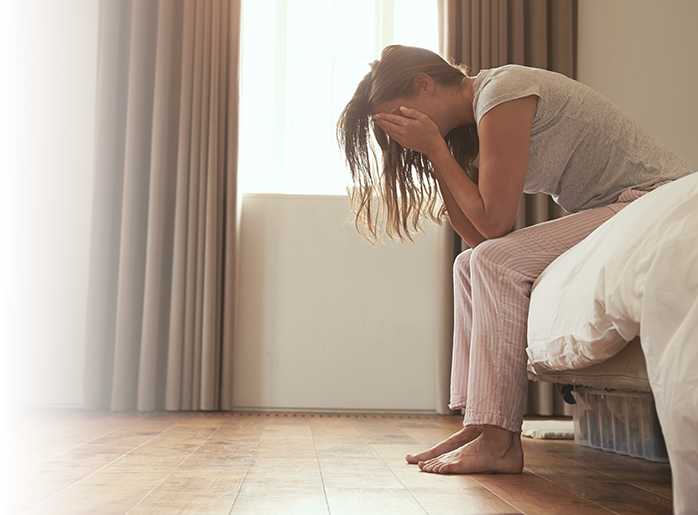Insomnia
Know More: Insomnia
Trustworthy information, straight from the source. Education is the first step in an empowering healthcare plan. Learn more about insomnia, from prevention to diagnosis and treatment.

Condition Overview
What is insomnia?
Insomnia is a condition that makes it hard to fall or stay asleep. Lack of sleep can lead to attention or memory problems during the day. You may also be moody, depressed, clumsy, or have headaches.
Risk Prevention
What increases your risk for insomnia?
- Older age.
- Stress or worry.
- A medical condition, such as sleep apnea, GERD, COPD, or asthma.
- A mental health condition, such as depression or anxiety.
- Blood pressure medicines or antidepressants.
- Odd work schedules or frequent travel.
What helps you reduce symptoms of insomnia?
- Go to bed when you feel sleepy and wake up at the same time each day.
- Avoid daytime naps.
- Obtain and maintain a healthy body weight.
- Exercise each day at a pace that feels comfortable.
- Avoid caffeine in the afternoon and evening and alcohol before bedtime.
- Turn off any electronics at least an hour before bed.
- Follow a soothing bedtime routine that helps you relax.
- Set aside a period of time each day to think about any concerns or worries.
Diagnosis & Treatment Options
How is insomnia diagnosed?
Insomnia is a persistent sleep problem that occurs even though you have the opportunity to get a full night of sleep. Common insomnia complaints include:
- Difficulty falling asleep
- Difficulty staying asleep during the night
- Waking up earlier than desired
To diagnose insomnia, your healthcare provider will talk to you about your sleep habits and medical history. You also may need to complete questionnaires or keep a sleep diary. A sleep study is not needed to diagnose insomnia.
How is insomnia treated?
Cognitive behavioral therapy for insomnia (CBT-I) is the most effective, long-term treatment for chronic insomnia. CBT-I teaches you to change negative thoughts and attitudes about sleep. You also develop relaxation skills and learn how to change behaviors that interfere with sleep. Sleeping pills are a short-term treatment option for insomnia. Like all medications, these drugs can cause a variety of sideeffects. You should take a sleeping pill only when supervised by a healthcare provider.
Treatment for insomnia also may involve treating an underlying medical problem, such as chronic pain. Changing medications or getting help from a counselor may improve your sleep.
Over-the-counter “sleep aids” are not recommended for the treatment of chronic insomnia. These include antihistamines and herbal supplements. There has not been enough research to show that they are safe and effective.
Preparing for Care
Take the next step for treating insomnia
- Talk to your healthcare provider about any ongoing sleep problems.
- Your healthcare provider will help find and treat any underlying causes of your insomnia.
- Discuss all of your medications and herbal supplements with your healthcare provider. Ask about the sleep-related side effects of your medications. Healthcare provider doctor may adjust your medication timing and dose to help improve your sleep.
- Your healthcare provider may give you questionnaires or a sleep diary to complete.
